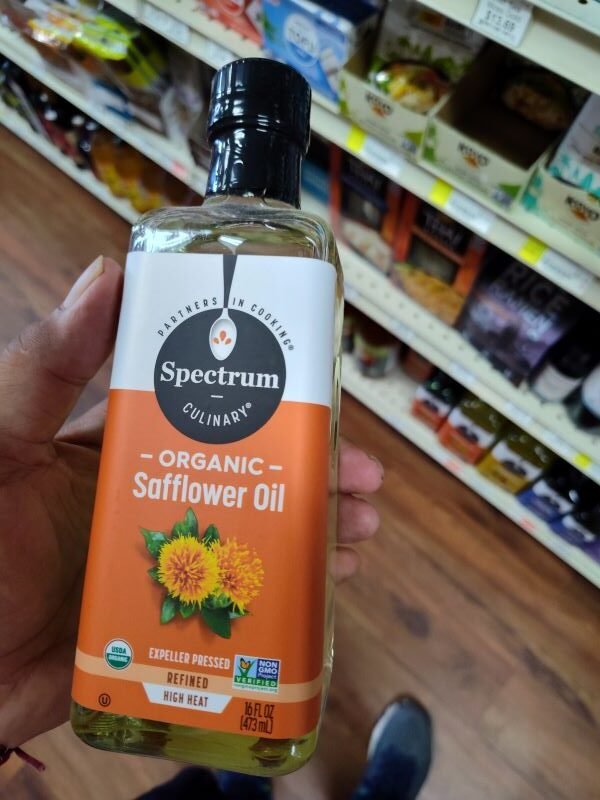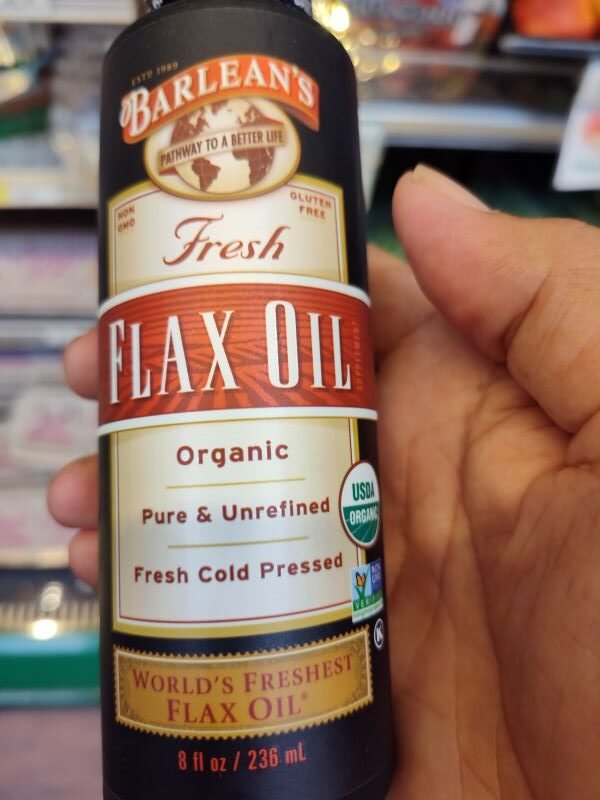9 Healthy and best oil for diabetic cooking
When I started researching Healthy cooking oils, I assumed that many oils were very limited and not good for Diabetics. Surprising to learn that there are actually plenty of cooking healthy oils that are workable for diabetics and not all of them are expensive to purchase and use.
I’m sharing over 9 cooking oils here that details all the various oils available and which are the best to use for different cooking heat levels, using it cold to high cooking levels and everything in between.
Quite a few of them I’ve never used but will start using these to understand their characteristics and how they do with different ingredients when you cook with them.
Here are the cooking oils that are diabetic friendlyj, with there cooking factors and health properties in no particular order:
Pin and save this for later


1. Avocado Oil
Including avocado oil in a balanced diet can provide these health benefits and contribute to better diabetes management. However, it’s always best for individuals to consult with their healthcare provider or a nutritionist to tailor dietary choices to their specific needs.
Avocado oil is considered beneficial for diabetics for several reasons:
- Healthy Fats: Avocado oil is rich in monounsaturated fats, which are known to improve heart health by reducing bad cholesterol levels. This is crucial for diabetics, who are at a higher risk of cardiovascular diseases.
- Anti-Inflammatory Properties: The oil contains oleic acid, which has anti-inflammatory properties. Chronic inflammation is common in diabetics, and reducing it can help manage the disease better.
- Antioxidants: Avocado oil is high in antioxidants, including vitamin E. Antioxidants help combat oxidative stress, which is often elevated in diabetics and can lead to complications.
- Blood Sugar Regulation: Some studies suggest that the healthy fats in avocado oil can improve insulin sensitivity and regulate blood sugar levels, making it easier for diabetics to manage their condition.
- Nutrient Absorption: The fats in avocado oil enhance the absorption of fat-soluble vitamins (A, D, E, and K) and other nutrients. This is beneficial for overall health and well-being, which is especially important for individuals with diabetes.
- Weight Management: Incorporating healthy fats like those in avocado oil can promote satiety and reduce overall calorie intake, aiding in weight management. Maintaining a healthy weight is crucial for managing diabetes.
Taste and cooking level
Avocado oil has a mild, buttery flavor with a hint of nuttiness. It is less intense than olive oil, making it versatile for various culinary uses without overpowering the other ingredients in a dish.
The smoke point of avocado oil is relatively high, typically around 520°F (271°C). This makes it an excellent choice for high-heat cooking methods like frying, sautéing, and grilling, as well as for baking and roasting. Its high smoke point helps prevent the oil from breaking down and producing harmful compounds during cooking.

2. Olive Oil
Including olive oil in a diabetic-friendly diet can offer these health benefits. However, it’s always recommended for individuals to consult with healthcare providers or nutritionists to tailor their dietary choices to their specific needs and health conditions.
Olive oil is beneficial for diabetics due to several key factors:
- Rich in Monounsaturated Fats: Olive oil is high in monounsaturated fats, particularly oleic acid, which helps improve heart health by lowering bad cholesterol levels. Diabetics are at an increased risk of cardiovascular diseases, so heart-healthy fats are essential.
- Anti-Inflammatory Properties: Olive oil contains compounds with anti-inflammatory effects, such as oleocanthal. Chronic inflammation is often present in diabetics and can lead to complications, so reducing inflammation is beneficial.
- Antioxidants: Olive oil is rich in antioxidants, especially polyphenols and vitamin E. These antioxidants help reduce oxidative stress, which is higher in diabetics and can damage cells and tissues.
- Improved Insulin Sensitivity: Some studies suggest that the healthy fats in olive oil can enhance insulin sensitivity, helping to regulate blood sugar levels more effectively. This can make it easier for diabetics to manage their blood glucose.
- Blood Sugar Control: Olive oil can slow down the digestion and absorption of carbohydrates, leading to a more gradual rise in blood sugar levels after meals. This can help prevent spikes in blood glucose.
- Weight Management: Incorporating olive oil into a balanced diet can promote satiety, which can help with weight management. Maintaining a healthy weight is crucial for managing diabetes effectively.
Taste and cooking level
Olive oil varies in taste depending on its type. Extra virgin olive oil has a robust, fruity flavor with a slightly peppery finish. Regular olive oil has a milder taste, while light olive oil is even more subtle.
The smoke point of olive oil depends on its type. Extra virgin olive oil has a lower smoke point, around 375°F (190°C), making it best suited for low to medium-heat cooking, such as sautéing or as a finishing oil. Regular and light olive oils have higher smoke points, typically around 465°F (240°C) and 470°F (245°C) respectively, which makes them suitable for higher-heat cooking methods like frying and baking.

3. Sesame Oil
Incorporating sesame oil into a balanced diet can provide these health benefits and contribute to better diabetes management. As always, it’s best for individuals to consult with their healthcare provider or a nutritionist to tailor dietary choices to their specific needs.
Sesame oil is beneficial for diabetics for several reasons:
- Rich in Healthy Fats: Sesame oil contains a good amount of polyunsaturated and monounsaturated fats, which can help improve heart health by lowering bad cholesterol levels. Diabetics are at a higher risk for heart disease, so consuming healthy fats is important.
- Antioxidant Properties: Sesame oil is high in antioxidants like sesamol and sesaminol. These antioxidants help reduce oxidative stress, which is often elevated in diabetics and can lead to complications.
- Anti-Inflammatory Effects: The compounds in sesame oil have anti-inflammatory properties, which can help reduce chronic inflammation associated with diabetes.
- Blood Sugar Regulation: Some studies suggest that sesame oil can improve insulin sensitivity and help regulate blood sugar levels, making it easier for diabetics to manage their condition.
- Rich in Magnesium: Sesame oil is a good source of magnesium, a mineral that plays a role in glucose metabolism. Adequate magnesium intake is important for maintaining normal blood sugar levels.
- Improves Circulation: Sesame oil contains linoleic acid, which can help improve circulation. Good circulation is vital for diabetics, as they often experience issues related to blood flow.
Taste and cooking level
Sesame oil has a distinctive, nutty flavor. There are two main types: light (or untoasted) sesame oil and dark (or toasted) sesame oil. Light sesame oil has a mild, neutral taste and is commonly used for cooking. Dark sesame oil, made from toasted sesame seeds, has a richer, more intense nutty flavor and is often used as a finishing oil or in dressings.
The smoke point of light sesame oil is around 410°F (210°C), making it suitable for stir-frying, sautéing, and baking. Dark sesame oil has a lower smoke point, around 350°F (175°C), and is best used for low-heat cooking or added to dishes after they are cooked to enhance flavor.

4. Safflower oil
Using safflower oil into a balanced diet can provide these health benefits and contribute to better diabetes management. As always, it’s advisable for individuals to consult with their healthcare provider or a nutritionist to tailor their dietary choices to their specific needs and health conditions.
Safflower oil can be beneficial for diabetics for several reasons:
- Rich in Unsaturated Fats: Safflower oil is high in unsaturated fats, particularly polyunsaturated fats, which can help reduce bad cholesterol levels and improve heart health. Diabetics are at an increased risk of cardiovascular diseases, so heart-healthy fats are important.
- Anti-Inflammatory Properties: The oil contains compounds that have anti-inflammatory effects, which can help reduce chronic inflammation associated with diabetes and its complications.
- Blood Sugar Regulation: Some studies suggest that safflower oil may help improve insulin sensitivity, aiding in the regulation of blood sugar levels. This can make it easier for diabetics to manage their blood glucose.
- Rich in Vitamin E: Safflower oil is a good source of vitamin E, an antioxidant that helps protect cells from damage caused by oxidative stress, which is often higher in diabetics.
- Weight Management: Including safflower oil in a balanced diet can help promote satiety and reduce overall calorie intake, aiding in weight management. Maintaining a healthy weight is crucial for managing diabetes effectively.
- Improved Blood Circulation: Safflower oil can help improve blood circulation, which is beneficial for diabetics as they often face issues related to poor circulation.
Taste and cooking level
Safflower oil has a very mild, neutral flavor, making it versatile and ideal for dishes where you don’t want the oil to influence the taste.
The smoke point of safflower oil is quite high, around 510°F (265°C) for refined safflower oil. This makes it excellent for high-heat cooking methods such as frying, sautéing, and roasting. Unrefined safflower oil has a lower smoke point, around 225°F (107°C), and is better suited for low-heat cooking or as a salad oil.

5. Flaxseed Oil
Flaxseed oil used in a balanced diet can offer these health benefits and contribute to better diabetes management. As always, it’s recommended for individuals to consult with their healthcare provider or a nutritionist to tailor their dietary choices to their specific needs.
Flaxseed oil is beneficial for diabetics for several reasons:
- Rich in Omega-3 Fatty Acids: Flaxseed oil is a great source of alpha-linolenic acid (ALA), a type of omega-3 fatty acid. Omega-3s can help reduce inflammation and improve heart health, which is crucial for diabetics who are at a higher risk of cardiovascular diseases.
- Anti-Inflammatory Properties: The omega-3 fatty acids in flaxseed oil have strong anti-inflammatory effects, which can help manage chronic inflammation associated with diabetes.
- Antioxidant Benefits: Flaxseed oil contains antioxidants that help combat oxidative stress, a condition often elevated in diabetics that can lead to various complications.
- Improved Insulin Sensitivity: Some studies suggest that the healthy fats in flaxseed oil can improve insulin sensitivity, helping to regulate blood sugar levels more effectively. This makes it easier for diabetics to manage their condition.
- Blood Sugar Control: Flaxseed oil may help stabilize blood sugar levels by slowing down the digestion and absorption of carbohydrates, preventing spikes in blood glucose after meals.
- Rich in Fiber: While the oil itself doesn’t contain fiber, flaxseeds do. Consuming flaxseeds along with the oil can provide dietary fiber, which helps control blood sugar levels by slowing digestion.
- Heart Health: The combination of omega-3 fatty acids and antioxidants in flaxseed oil supports overall heart health, reducing the risk of heart-related complications in diabetics.
Taste and cooking level
Flaxseed oil has a distinct, nutty flavor with a slightly earthy and bitter aftertaste. It is often used for its nutritional benefits rather than its taste.
Flaxseed oil has a very low smoke point, around 225°F (107°C), making it unsuitable for cooking, especially at high temperatures. It is best used in cold applications such as salad dressings, smoothies, or drizzled over dishes after they are cooked. Heating flaxseed oil can cause it to lose its beneficial properties and develop an unpleasant taste.

6. Coconut Oil
While coconut oil can offer these potential benefits, it’s important to use it in moderation and as part of a balanced diet. As always, it’s advisable for individuals to consult with their healthcare provider or a nutritionist to tailor their dietary choices to their specific needs and health conditions.
Coconut oil can be beneficial for diabetics for several reasons:
- Medium-Chain Triglycerides (MCTs): Coconut oil is rich in MCTs, which are a type of fat that is quickly absorbed and used for energy. MCTs can help improve insulin sensitivity and provide a stable source of energy without causing spikes in blood sugar levels.
- Improved Insulin Sensitivity: Some studies suggest that the MCTs in coconut oil can enhance insulin sensitivity, making it easier for diabetics to manage their blood sugar levels.
- Anti-Inflammatory Properties: Coconut oil contains compounds with anti-inflammatory effects, which can help reduce chronic inflammation that is often present in diabetics.
- Antioxidant Benefits: Coconut oil has antioxidant properties that help combat oxidative stress, a condition that can lead to various complications in diabetics.
- Weight Management: Including coconut oil in a balanced diet can promote satiety and reduce overall calorie intake, aiding in weight management. Maintaining a healthy weight is crucial for managing diabetes effectively.
- Blood Sugar Control: The healthy fats in coconut oil can help slow down the digestion and absorption of carbohydrates, leading to a more gradual rise in blood sugar levels after meals.
- Energy Source: The MCTs in coconut oil provide a quick and sustained source of energy, which can be beneficial for maintaining energy levels without causing blood sugar spikes.
Taste and cooking level
Coconut oil has a light, tropical flavor with a subtle hint of coconut. Refined coconut oil is more neutral in taste, while unrefined (virgin) coconut oil retains more of its coconut aroma and flavor.
The smoke point of refined coconut oil is around 400°F (204°C), making it suitable for baking, sautéing, and frying. Unrefined coconut oil has a lower smoke point, around 350°F (177°C), and is better suited for medium-heat cooking or as a flavor enhancer in dishes where its coconut taste is desired.

7. Canola Oil
Canola oil is considered beneficial for diabetics for several reasons:
- Rich in Healthy Fats: Canola oil is high in monounsaturated fats and low in saturated fats. These healthy fats can help reduce bad cholesterol levels and improve heart health, which is important for diabetics who are at a higher risk for cardiovascular diseases.
- Omega-3 Fatty Acids: Canola oil contains a good amount of alpha-linolenic acid (ALA), a type of omega-3 fatty acid that has anti-inflammatory properties and supports heart health.
- Improved Insulin Sensitivity: Some studies suggest that diets rich in monounsaturated fats, like those found in canola oil, can improve insulin sensitivity, helping to better regulate blood sugar levels.
- Low Glycemic Impact: The healthy fats in canola oil help slow down the absorption of carbohydrates, which can lead to a more gradual rise in blood sugar levels after meals, preventing spikes in blood glucose.
- Antioxidant Properties: Canola oil contains vitamin E, an antioxidant that helps protect cells from damage caused by oxidative stress. This is particularly beneficial for diabetics, as they often experience higher levels of oxidative stress.
- Weight Management: Incorporating canola oil into a balanced diet can promote satiety and help with weight management. Maintaining a healthy weight is crucial for effective diabetes management.
The taste of Canola oil is neutral that makes it perfect to absorb the flavors of the dish and ingredients you will be using. You can use canola oil to cook with extremely high cooking temperatures or an easy saute, grill or coated for broiling.
Taste and cooking level
Canola oil has a very mild, neutral flavor, making it versatile for a wide range of culinary uses without affecting the taste of the food.
The smoke point of canola oil is relatively high, around 400°F (204°C). This makes it suitable for various cooking methods, including frying, baking, grilling, and sautéing. Its high smoke point allows it to be used in high-heat applications without breaking down or producing harmful compounds.

8. Sunflower Oil
Sunflower oil is beneficial for diabetics for several reasons:
- Rich in Healthy Fats: Sunflower oil contains a high amount of polyunsaturated and monounsaturated fats, which help improve heart health by reducing bad cholesterol levels. This is important for diabetics who are at a higher risk of cardiovascular diseases.
- Vitamin E: Sunflower oil is an excellent source of vitamin E, a powerful antioxidant that helps protect cells from damage caused by oxidative stress. Oxidative stress is often elevated in diabetics and can lead to complications.
- Anti-Inflammatory Properties: The oil contains compounds with anti-inflammatory effects, which can help reduce chronic inflammation commonly associated with diabetes.
- Blood Sugar Control: The healthy fats in sunflower oil can slow down the absorption of carbohydrates, leading to a more gradual rise in blood sugar levels after meals. This helps prevent spikes in blood glucose levels.
- Improved Insulin Sensitivity: Some studies suggest that the fats in sunflower oil may help improve insulin sensitivity, aiding in better regulation of blood sugar levels.
- Heart Health: The combination of healthy fats and antioxidants in sunflower oil supports overall heart health, reducing the risk of heart-related complications in diabetics.
- Weight Management: Including sunflower oil in a balanced diet can promote satiety and help with weight management. Maintaining a healthy weight is crucial for effective diabetes management.
Like canola oil, sunflower oil has a mild flavor that you can use to add onto your ingredients and sauces. Canoloa oil can take a high heat capacity that makes it perfect for everyday cooking.
Taste and cooking level
Sunflower oil has a light, neutral flavor, making it a versatile choice for cooking without altering the taste of the food.
The smoke point of sunflower oil is quite high, around 440°F (227°C) for refined sunflower oil. This makes it suitable for high-heat cooking methods such as frying, roasting, and sautéing. Unrefined sunflower oil has a lower smoke point, around 225°F (107°C), and is better suited for low-heat cooking or as a salad oil.

9. Peanut Oil
Another tasty alternative to butter and shortening that promotes heart health is peanut oil. This peanut-based oil is rich in healthy monounsaturated and polyunsaturated fat.
Including peanut oil in your diet has been found to reduce cardiovascular disease by 16%. This nutty-tasting oil can help control blood sugar levels and balance cholesterol levels, important for managing diabetes.
The nutty flavor of roasted peanut oil makes an excellent addition to decadent desserts that are rich in healthy fats. For a healthier balance, you can use peanut oil to add depth to a crisp Chinese chicken salad
Taste and cooking level
Peanut oil has a mild, nutty flavor that can enhance the taste of foods without overpowering them.
The smoke point of peanut oil is high, around 450°F (232°C), making it an excellent choice for high-heat cooking methods such as frying, roasting, and stir-frying. Its high smoke point helps prevent the oil from breaking down and producing harmful compounds during cooking.
Check out these other healthy tips
Best fruits to eat for Diabetics
